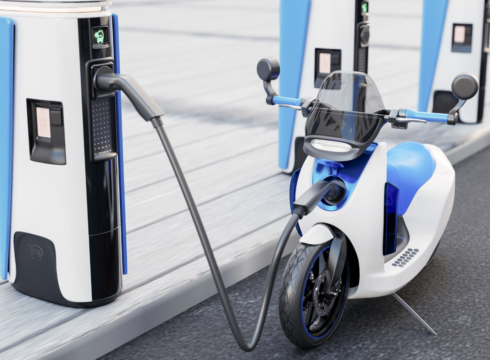SUMMARY
During a meeting with stakeholders of 24 electric two-wheeler OEMs, it was decided that subsidy for EVs would be reduced to 15% of ex-factory price of the vehicles from 40%
The government aims to increase the allocation for two-wheeler EVs under the FAME-II scheme to INR 3,500 Cr from INR 2,000 Cr earlier
Registrations of two-wheeler EVs dropped around 23% month-on-month in April amid the uncertainty surrounding the FAME-II scheme and the ongoing probe against OEMs
Inc42 Daily Brief
Stay Ahead With Daily News & Analysis on India’s Tech & Startup Economy
At a time when a number of two-wheeler electric vehicle (EV) makers are under the scrutiny for misappropriation of Faster Adoption and Manufacturing of Electric Vehicles (FAME-II) scheme’s subsidies, the Centre reportedly plans to cut the per vehicle subsidy for two-wheeler EVs under the scheme.
During a meeting with stakeholders of 24 electric two-wheeler original equipment manufacturers (OEMs) registered under the FAME-II scheme on Tuesday (May 16), a consensus was reached that the demand incentive may be kept at INR 10,000 per kWh of battery capacity for two-wheeler EVs but the subsidy would be reduced to 15% of the ex-factory price of the vehicle from 40% at present, news agency PTI reported.
The government also aims to increase the allocation for two-wheeler EVs under the INR 10,000 Cr scheme to INR 3,500 Cr from INR 2,000 Cr by transferring the unutilised subsidies earmarked for three-wheeler and four-wheeler EVs, the report said.
However, no decision has been taken on extension of the scheme, which ends in March 2024, an official was cited as saying.
A proposal on the agreed changes would be placed before the Programme Implementation and Steering Committee (PISC).
With the increasing demand for e-two-wheelers, the government is committed to providing the necessary support to the industry to ensure sustainable growth and reduce carbon emissions, Union Minister of Heavy Industries Mahendra Nath Pandey said.
“The consensus reached during the stakeholder consultation signals a positive step towards sustainable transportation solutions in India. With continued efforts and collaboration between the government and industry, India can become a global leader in sustainable transportation and reduce its dependence on fossil fuel,” the minister added.
However, Nehal Gupta, director of EV financing startup AMU Leasing, said that the potential slashing of subsidies for two-wheelers EVs is a matter of concern for the industry. The existing subsidy structure has played a pivotal role in making electric vehicles more affordable and encouraging their adoption among consumers, Gupta said.
“While we understand the need for policy revisions and cost optimisations, it is essential to strike a balance that ensures the continued affordability of electric two-wheelers. We urge the government to carefully evaluate the impact of reducing subsidies and explore alternative measures to support the affordability and accessibility of EVs,” Gupta added.
Meanwhile, Sushant Kumar, founder of AMO Mobility, said that the potential subsidy reduction may affect the prices of vehicles but welcomed the move to increase the outlay for two-wheelers to benefit a higher number of customers.
“While potential subsidy reductions may affect prices, we are confident in our ability to navigate this challenge through innovation and operational efficiency. At AMO Electric Bikes our goal is to ensure the paradigm shift from conventional mobility to electric mobility. With increased support and our cost-effective solutions, we will drive the growth of electric mobility and shape a greener future in collaboration with the government,” Kumar said.
It must be noted that registrations of two-wheeler EVs dropped around 23% month-on-month (MoM) in April amid the uncertainty around the FAME-II scheme and the ongoing probe against OEMs for misappropriation of subsidies. A total of 66,410 two-wheeler EVs were registered in April as against 86,187 units in March.
Earlier in March, a parliamentary committee recommended extending the second phase of the FAME scheme. In its 26th report on the ‘Evaluation of Electric Vehicle (EV) Policy’, the Committee on Estimates said it was concerned about significant price escalation of EVs if the government support was removed.
The second phase of the FAME scheme, aimed at incentivising EV adoption by providing subsidies, is scheduled to end on March 31, 2024.
Note: We at Inc42 take our ethics very seriously. More information about it can be found here.


